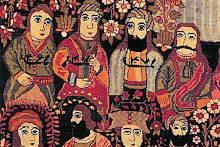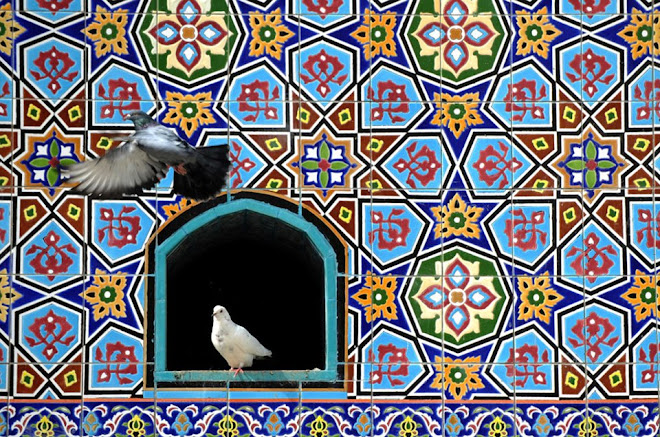“A
Zen master remarked: ‘Renunciation is not giving up the things of the world, it
is accepting that they go away.’ The result of such acceptance is fulfillment,
not deprivation.”
-
Dr. Arthur Deikman, in The Observing Self
Hasan
of Basra was an early Muslim savant and mystic born in the city of Medina in
642 AD. The son of a slave, he grew up to be a theologian and established a
school of religious thought in Basra (modern day Iraq), which taught several
generations of students. He was considered by many to be the most accomplished
luminary of his time. Today, after over 1,000 years, he is still revered as one
of the greatest saints in early Islam.
At
a certain point in his life, Hasan became distressed by the corruption and
material excess of his nascent society. In order to oppose and mitigate the
effects of these developments, he increasingly threw himself into a life of
piety and self-denial. Like many Islamic mystics who lived in the period immediately after the prophet’s death, Hasan began his journey towards self-knowledge as an
ascetic.
The
influence of nearby religions (notably Christianity and Hinduism) as well as
certain interpretations of the Koran, helped to popularize asceticism as an
approach among the spiritually minded. Because most religious traditions
(including Islam) espoused a certain degree of abstemiousness and renunciation
as a means to freeing mental capacity for greater learning, and because some
individuals always confuse a means for an end, renunciation was embraced by
some in the extreme.
Ascetics
often went to great lengths to pursue their objectives. The practice of
celibacy, of placing one’s trust in the divine for physical sustenance, and a
firm rejection of family and material life were all hallmarks of a difficult
regimen of self-denial. These activities a times included cumbersome
mortifications and self-imposed hardships that were very painful.
Whatever
his exact motives, or where he may have fallen on this spectrum, Hasan’s
experience as an ascetic led him to a key psychological insight that was to
become one of his better known contributions to the field of spiritual
development: the idea that
privations meant to weaken desire and the Self could have an
opposite effect; and that asceticism can be a masochistic and self-indulgent desire
that may feed the very ego which the aspirant is trying to reduce and contain.
Hasan
would eventually state as much publicly, echoing statements made by the prophet
who discouraged extreme self-denial in Islam. According to esoteric streams within Islam, the developmental work of humankind necessitates being in close
proximity to the world and to society - and not living permanently as a recluse
outside of it.
By
virtue of his life and teaching, Hasan struck a balance between those revelling
in the materialism born of the success that came with the consolidation of a
new empire, and the extreme reactionaries who sought to deny themselves those
same fruits: two groups who constituted two sides of the same coin.
Hasan’s
comments about asceticism were also, in themselves, advances in the field of
human psychology – a discipline at the crux of all real spiritual
systems, which the Arabs were to develop and master long before the appearance
of either the likes of Sigmund Freud, or Carl Jung.
Even
those iconic fathers of modern psychology - in spite of the praise and worship heaped
upon them - scarcely touched upon the profound understandings which people like
Hasan of Basra, and other Sufi luminaries, were to develop and refine over
several centuries.











